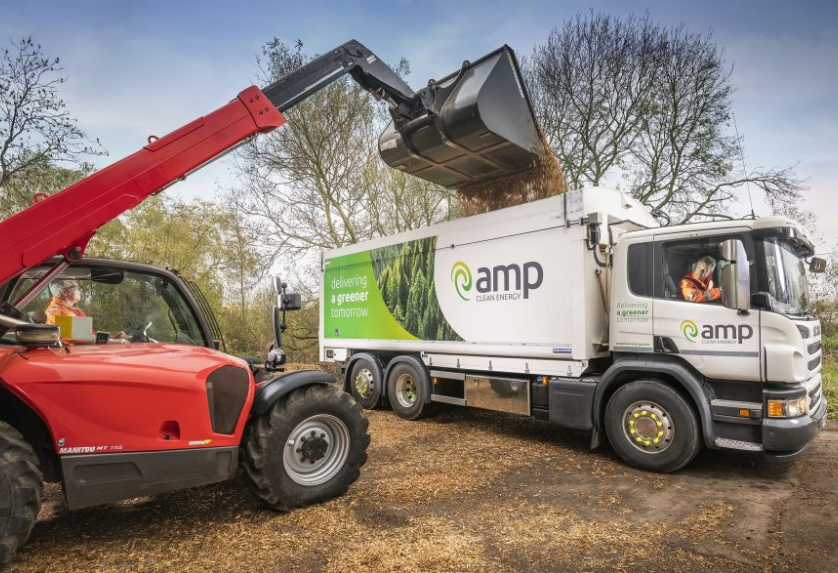AMP Clean Energy's CEO Richard Burrell believes bioenergy will be critical to decarbonisation in the UK over the coming decades

Bioenergy creates power using resources such as wood and food waste (Credit: AMP Energy)
Bioenergy will play a pivotal role in the UK meeting its zero emissions targets for 2050, according to the Renewable Energy Alliance’s latest report.
AMP Clean Energy, a UK-based biomass supplier that contributed to the study, claims roughly 6% of the heating generated in Britain is accounted for by renewable power sources – the EU requires this to reach 12% by the end of next year, a target that appears to be out of reach.
However, bioenergy, which uses sustainable biomass and biofuels produced from wood, crops and food wastes, has been highlighted as a means by which the country could reach 16% by 2032, with biomass, specifically, acting as one of the primary contributors.
“Biomass is a proven, world-renowned technology which can continue to make a significant contribution to the decarbonisation of heat in the UK,” said Richard Burrell, CEO of AMP Clean Energy.
“Under the RHI [Renewable Heat Incentive], 87% of renewable heat to date has come from biomass, which has been particularly successful in decarbonising community buildings, schools, hotels and agricultural processes.
“We now need off-grid industrial processes to convert from fossil fuels to biomass and we can help with the financing, fuel, and operation and maintenance.

How bioenergy can help the UK meet its 2050 zero emissions targets
The Renewable Energy Alliance’s report, a continuation of its January 2019 study, found wood fuels could be making much larger contributions to powering the heat needed for buildings and industry.
It claims the power source could, in particular, help provide low carbon heating in off gas-grid properties in addition to areas where heating via heat pumps is constrained.
Perhaps its most salient finding is that bioenergy is the lowest-cost route to decarbonising the power generation requirements associated with heating.
Mr Burrell added: “With the RHI coming to an end in 2021, there is an opportunity to install new systems before that date as well as to look at new and innovative ways of financing the decarbonisation of heat.
“We need to find a way to deliver the much-needed transition to renewable heat generation to build on some of the positive steps that have already been taken and to avoid a cliff edge for new renewable heat installations after 2021.
“At AMP Clean Energy we are considering what mechanisms could be deployed to achieve this and look forward to discussing our thoughts with Government.”
